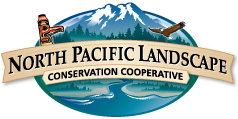Responses of Alaskan Groundfishes to Ocean Acidification
Meeting Date: 6/17/2016
- 6/17/2016
Location: Webinar
Website: Website
Fri, June 17, 1pm – 2pm
Where: SSMC4 - Large Conference Room - 10153 or via webinar - see login info below. Description OneNOAA Science Seminar Series
Presenter: Thomas Hurst, Research Fisheries Biologist with the NOAA-NMFS Alaska Fisheries Science Center in the Fisheries Behavioral Ecology Program, located at Oregon State University's Hatfield Marine Science Center in Newport, OR
Sponsor: NOAA's National Ocean Service Science Seminar; point of contact is
Remote Access: Mymeeting webinar uses phone and internet. For Audio, dial toll-free (in US and CAN) 1-877-708-1667. Enter code 7028688# The webcast is at www.mymeetings.com Under "Participant Join", click "Join an Event", then add conf no: 744925156. No code is needed for the web. Be sure to install the correct plug‐in for WebEx before the seminar starts (temporary plugin works fine).
Abstract: In this talk, I will review a series of experimental studies of the effects of elevated CO2 levels on the early life stages of commercially-important Alaskan groundfish. Experiments have been conducted with walleye pollock, Pacific cod, northern rock sole,and speckled sand dab. Initial work examined the direct effects of elevated CO2 on growth, survival, and energetic condition of fish. More recent work has expanded to look at the behavioral impacts of ocean acidification (OA) and the potential interactions between nutritional and physiochemical stress on larvae. These results are being incorporated into analyses of the risk that OA plays to Alaskan communities.
About the Speaker: Thomas Hurst is a Research Fisheries Biologist with the NOAA-NMFS Alaska Fisheries Science Center in the Fisheries Behavioral Ecology Program located at Oregon State University’s Hatfield Marine Science Center in Newport, OR. Tom also holds an appointment as a Courtesy Assistant Professor in the Department of Fisheries and Wildlife at Oregon State University. His research blends field studies and laboratory experimentation to examine the ecology of early life stages of marine species and the constraints imposed on this ecology by the environment. Much of this work focuses on the pervasive influence of temperature variation and ocean acidification on aspects of behavior, habitat selection, growth energetics, and larval ecology. His research is focused on species of commercial importance in Alaska: walleye pollock, Pacific cod, northern rock sole, and Pacific halibut.
(Thomas Hurst, Research Fisheries Biologist with the NOAA-NMFS Alaska Fisheries Science Center in the Fisheries Behavioral Ecology Program, located at Oregon State University's Hatfield Marine Science Center in Newport, OR)
